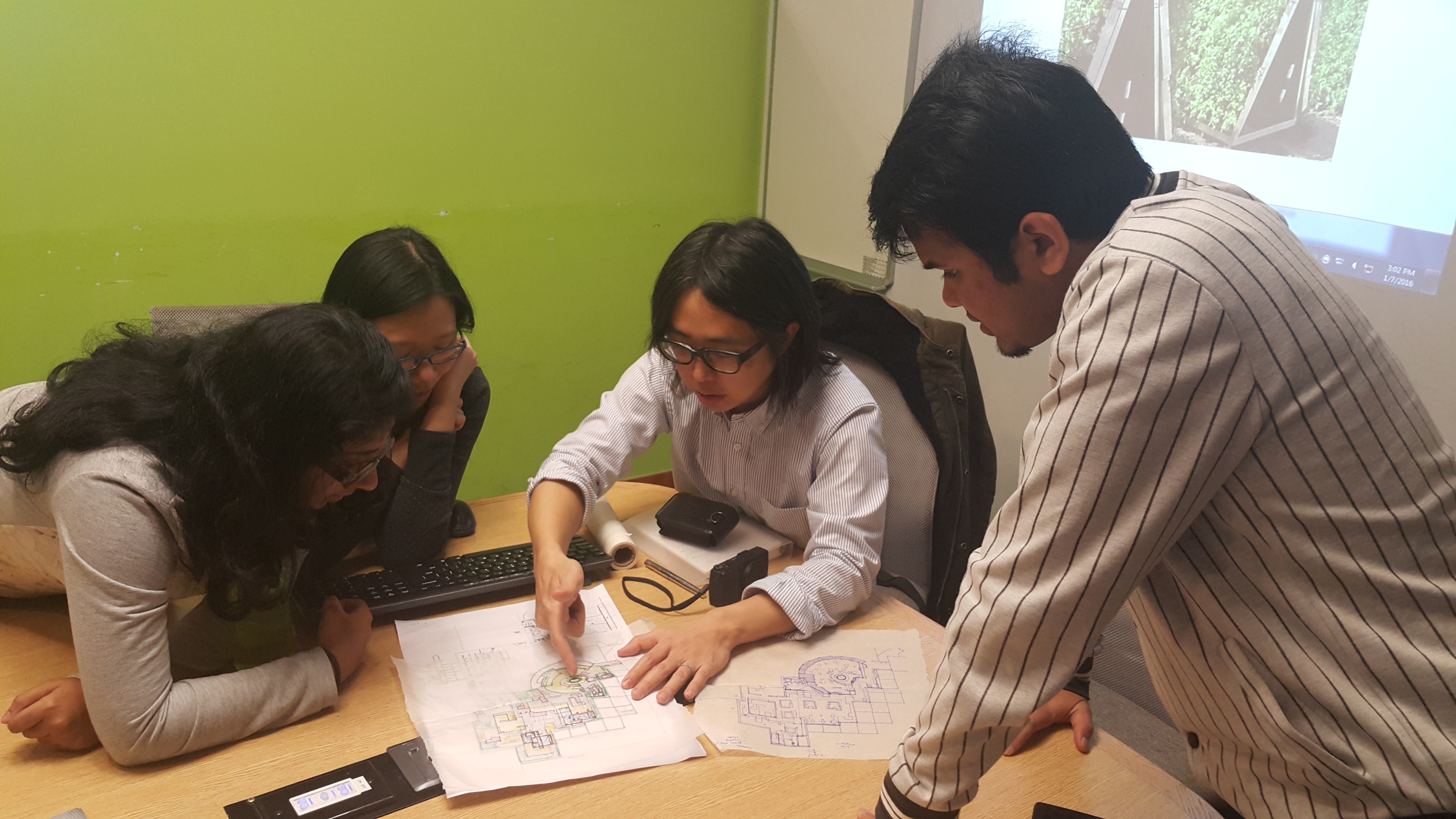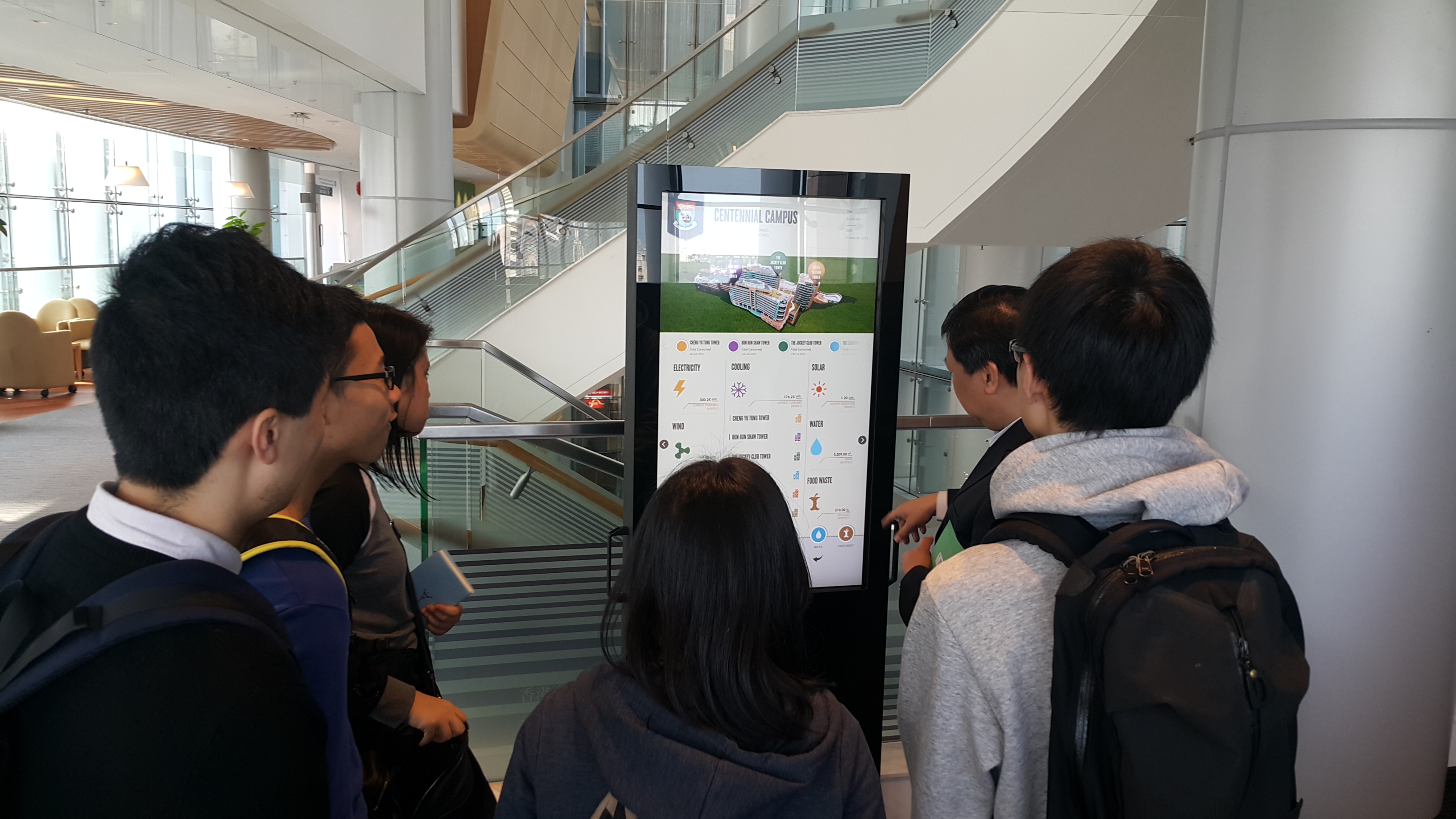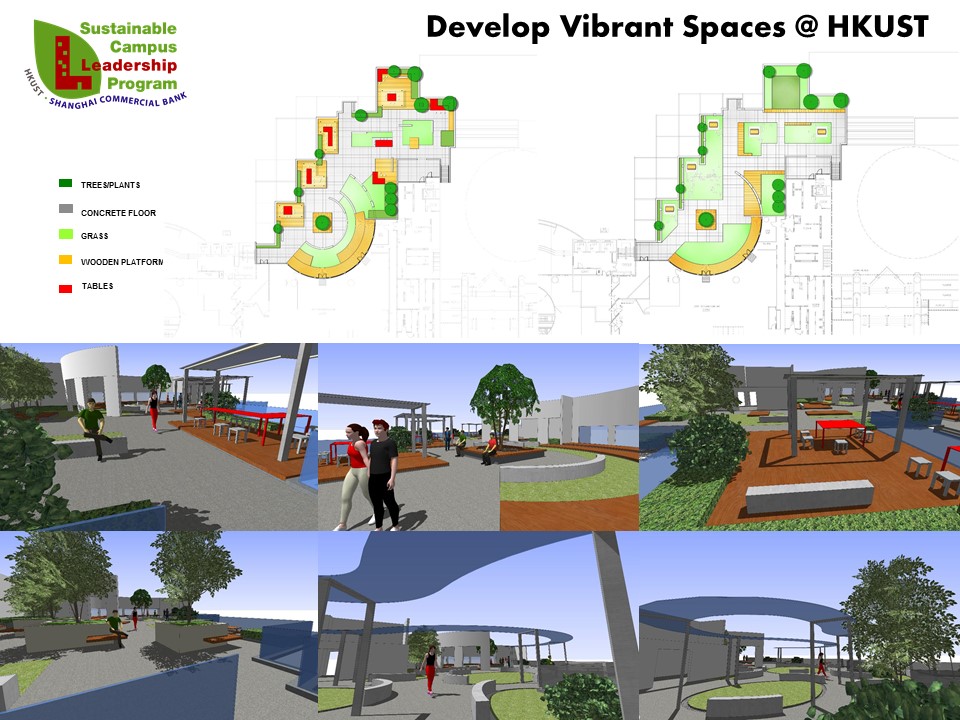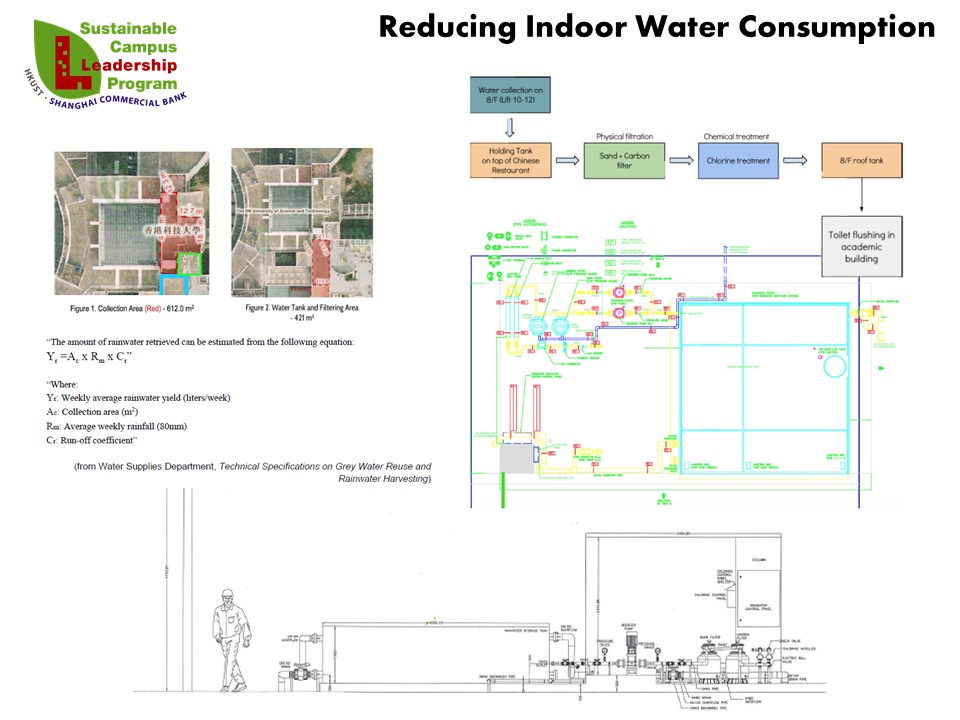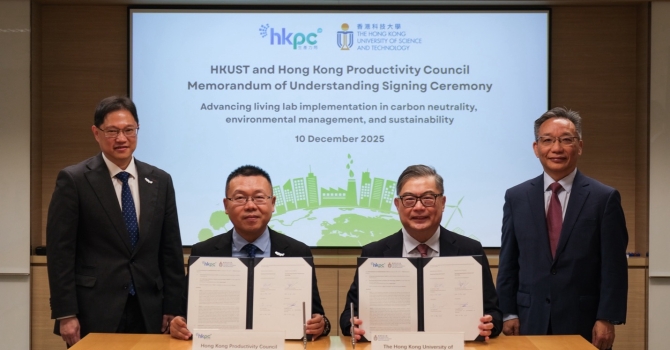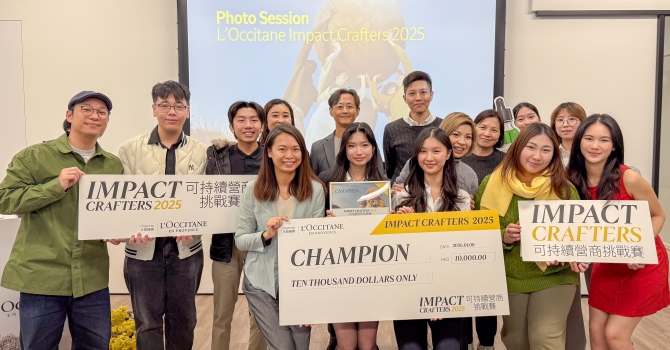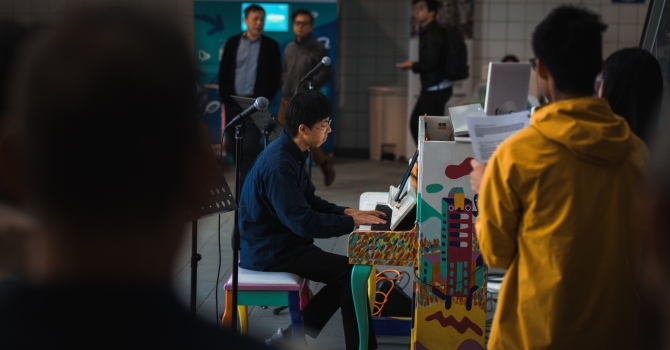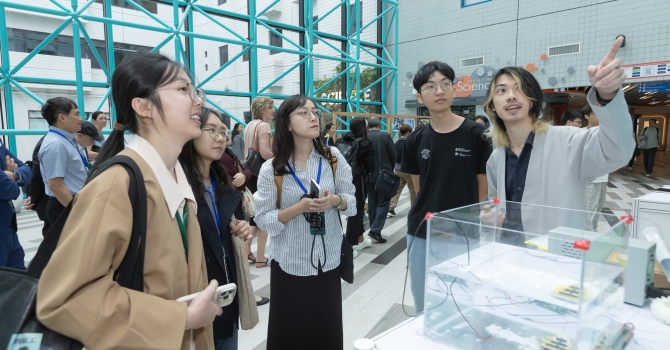Bringing Expertise into Green Campus Projects
To deliver education in the knowledge-based society, one of our key tasks is to equip students to turn knowledge into actions. It’s been three years since the Sustainable Campus Leadership Program was launched that provides hands-on experience for students to design and implement their own Green Campus Projects in HKUST to address different sustainability issues.
This year, with the sponsorship from the Shanghai Commercial Bank, the program supported students with more resources for them to partner with industry experts and develop the green projects. In the fall semester, 20 Eco-reps from different schools and backgrounds have identified their interested sustainability areas and designed three group projects for “Rainwater harvesting feasibility study”, “Develop Vibrant Spaces @ HKUST” and “Reducing Indoor Water Consumption”. Not only developing the project management skills and gaining team work experience, students had to solve different problems throughout the whole project by thinking creatively and adopting the sustainability ideas and actions.
When it comes to natural resources like water, people may ask about the value of conserving it as the water charge is quite low in Hong Kong compared to other cities. Think in a way of sustainability, our students see water as precious and free resources. With high water consumption in Hong Kong, water scarcity is a global issue that can’t be ignored as we live under one planet.
The “Rainwater harvesting feasibility study” group has spent the past year in understanding different rainwater harvesting systems in the market and other universities, our own campus groundwater tank, irrigation and toilet flushing systems. By engaging with the Facilities Management Office (FMO) and an Engineering consultant, the group is consolidating a feasibility study for University consideration to build a rainwater harvesting system with water treatment process on the rooftop in academic building that connects to seawater tank for toilet flushing. The system can make use of free water, reduce pumping energy cost and maintenance need from corrosion. Veronica Li, a member of the group, stated, “Through our efforts, we hope to share what we have learned about sustainability with the HKUST community, and to bring a permanent, positive change to the way we use water on campus.”
Another group of Eco-reps looked into ways to reduce indoor water consumption on campus. The student halls and academic building are the areas that consume the most water in UST. In view of higher water consumption during semester in student halls, students conducted test trial in SKCC hall to find out the water flow of shower head and faucets. They will further test out different low-flow showerheads and recommend to the office for future purchases. The group has identified the opportunity to better engage our students to report water leakage by allowing them to access the online portal. The students also launched a green pledge and conducted a water survey for all staff and students to understand their attitude, belief and habit towards water conservation which will help us better design a water saving campaign in the future and to collaborate with the hall Green Trekkers and green NGO. One of the students, Stephan Llerena from US and Ecuador shared, “With the extremely low prices of subsidized water in Hong Kong, my team and I were forced to find other justifications outside of finances to communicate the importance of water conservation to our university community.”
The third Eco-reps group has vision to create an outdoor vibrant space for the enjoyment of all students and staff. They have identified the area behind the Chinese restaurant facing the sea. Not willing to underutilize this space with gorgeous view, they hope to redesign this space for students to relax and socialize. The group conducted several focus group studies and mass survey to understand the needs of our campus community, how we can better connect them to the natural environment, and the ideal attributes for the space design such as comfortable outdoor seating area, mood lighting, shelter from sun, Wi-Fi connection and grass courtyard. The students took the findings and worked with a landscape architect to come up with a few options of space design for further consultation with UST members. The final proposal and design will be presented to the FMO and university for consideration and implementation in the campus plan. Varna KANUNGO told us, “Being able to contribute towards sustainability and give back to the HKUST community was not only an incredible opportunity, but also a great learning experience.”
SCB-HKUST Sustainable Campus Leadership Program 2016-17Recruitment is now open! Students who are interested in the program have to submit an online application by 14 September 2016. Please read further details of this program by clicking here.
